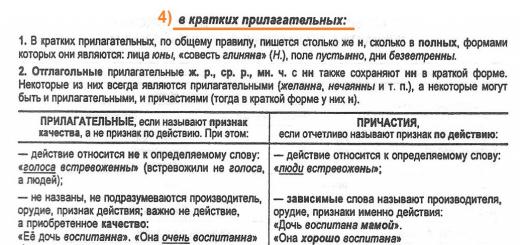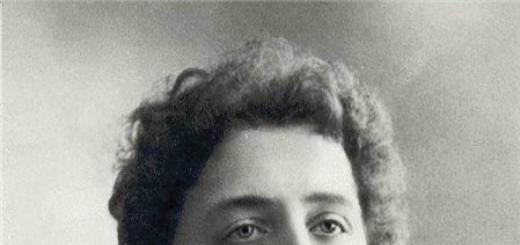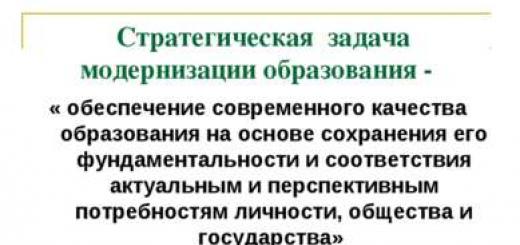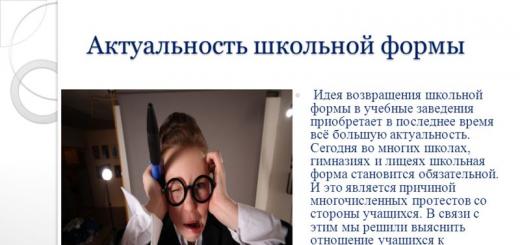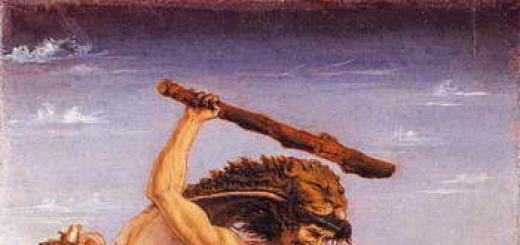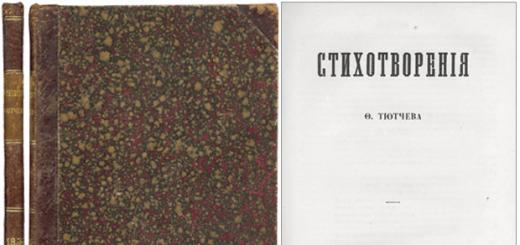There are no women in closed male educational institutions, but there is a period of puberty. And in a society of one hundred men, there will always be a couple of obvious homosexuals who will gladly involve anyone possible in this process. So there begin unnatural sexual games among themselves, in which the majority participate out of curiosity (although I never heard of anything like this in the Soviet Suvorov schools).
But today we are not talking about them, but about the Imperial School of Law - one of the most elite educational institutions of the Russian Empire, which was inaugurated 178 years ago, on December 5, 1835 in the presence of Emperor Nicholas I and heir Alexander. As in many closed male educational institutions, same-sex sexual traditions became especially widespread in this school.
Pupils of the School of Law in the dormitory (dormitory), 1911
But if for the majority of students at the School of Law homosexual preferences were only “experiences of adolescence,” then for those like Pyotr Ilyich Tchaikovsky and his brother Modest Tchaikovsky, they will remain for the rest of their lives.
But Modest’s twin brother, Anatoly Tchaikovsky, did not become homosexual after the School of Law.

Photo of the XX graduation of the School of Law. Of the thirty-two young people, only two tenderly hold each other's hands.
.
« And the “Guardians,” Zyukin, is a secret society that protects the honor of the dynasty and ancient Russian families from shame and reproach. Haven't you heard? The year before last they forced this... what's his name... composer... damn, I can't remember his last name. For screwing up NN<Эндлунг назвал имя одного из молоденьких великих князей, которое я тем более повторять не стану
>" (c) Boris Akunin “Coronation, or the Last of the Novels.”
This quote from Akunin is based on a real rumor that was circulating in Russia at one time that Tchaikovsky died of cholera for a reason, but committed suicide. Allegedly, the great Russian composer seduced some very noble boy, almost a member of the House of Romanov. Concerned about the possible damage to the reputation of their elite educational institution, graduates of the Imperial School of Law convened a “court of honor”, according to which the composer took his life by simulating cholera.
This rumor would later be refuted by historians for many reasons, not the least of which was that it was impossible to spoil the reputation of the School of Law with the homosexual adventures of one of its graduates - this educational institution had long been famous in St. Petersburg for its “gay” morals.

Lawyers are kicking a ball around in the school garden. Photo 1913-1914
Until 1832, homosexuality in the Russian Empire was a crime only for a short time under Peter I, and only for military personnel. With the adoption under Nicholas I of the Code of Laws of the Russian Empire, two articles punishing homosexuality were included in the “Code of Punishments”.
Sodomy itself (paragraph 995) was punishable by deprivation of all rights of estate and exile to Siberia for a period of 4 to 5 years. Committing sodomy with the use of violence or against minors or the weak-minded (paragraph 996) was punishable by deprivation of all rights and hard labor for a term of 10 to 12 years.
But according to the expression attributed to Saltykov-Shchedrin, “the severity of Russian laws is softened by the optionality of their implementation,” and these paragraphs in the Russian Empire were rarely tried on in judicial practice. For example, just in those years (1833-1849), the Minister of Public Education of the Russian Empire and the President of the St. Petersburg Academy of Sciences was Count Uvarov, whose homosexual affections were lively discussed in society. And Count Uvarov’s appointment of his lover, Prince Dondukov-Korsakov, to the post of vice-president of the academy was ridiculed by Pushkin in a famous epigram:
At the Academy of Sciences
Prince Dunduk is in session.
They say it's not appropriate
Dunduk is so honored;
Why is he sitting?
Because well..there is.
This minister and his lover enlightened future lawyers on how to handle the law.


Imperial School of Law (view from the Fontanka River and facade), photo from the 1900s.
And back in 1862, St. Petersburg was rocked by a scandal with the closure of the Shotana restaurant, as a gathering place for secular pederasts, who formed a kind of club there with the participation of students of the School of Law (in common parlance, “legal scholars”).
Everyone who visited that club was disgraced throughout the city by the name “bugors” (from the corrupted French “bougre” - “sodomite, sodomite”), many houses closed their doors, acquaintances stopped bowing, and some of the disgraced jurists left the School out of shame and left St. Petersburg . But the majority remained, and no one drove them out of the Imperial School of Law.

And finally, about one misconception. At the instigation of Valentin Pikul (“I have the honor”), a story went around the world that the famous funny song “Chizhik-Pyzhik, where have you been?//Drank vodka on the Fontanka” owes its appearance to lawyers who secretly visited the tavern, which was located there (even, I remember, in “What? Where? When?” there was such a question).
Wikipedia says about this: “ The students of the school—in common parlance “lawyers”—wore a yellow-green uniform and a triangular hat, and in winter a fawn hat (which is why they received the nickname “chizhikov-fawns).”.
This is all untrue - no yellow-green uniform » jurists did not wear them; their uniform was a dark green (in common parlance “bottle”) color, with a light green cloth collar and cuffs. The buttons were gilded, with an eagle, and the overcoats were also dark “Nikolaev” with beaver collars.


A student of the Imperial Alexander Lyceum (left), a student of the Imperial School of Law (right).
And siskins from the family of finches, the order of passerines. Well they don't look alike at all
.
The color of the motley siskins, the “bottle” color of the uniform of lawyers, did not in any way resemble, especially since dark green was the uniform color for university students, and the uniforms of lyceum students and lawyers generally differed only in the color of the buttonholes and piping.
And the students of the School of Law never wore any “fawn hats” - both in winter and summer they were given a cocked hat without a plume and were allowed a cap (which, although not provided for by the Charter of the school, was allowed).


Lawyers in uniform in winter and summer. Future world chess champion A.A. Alekhine, photo 1913, and D.A. Levitsky, photo 1917
And the song about siskin-fawn was known at least 10 years before the opening of the Imperial School of Law. From the correspondence of Pushkin’s contemporaries, Izmailov - Yakovlev, November 16, 1825: “ A parody was made of the return of the first [Gnedich]: “Gnedich, Gnedich! where have you been? In the Caucasus, I washed it; washed once, washed twice, my head was refreshed" And this song spread to jurists, perhaps only because of their “f..ki.”
By the way, they say yesterday was Lawyer’s Day in Russia? Congratulations.
Published with reference to the Civil Code of the Russian Federation Article 1274. On the free use of a work for informational, scientific, educational or cultural purposes.
The publication partially uses sources from the Internet.
In the photo there is a bronze Chizhik-Pyzhik installed on the Fontanka opposite the house of the former law school.
“Chizhik-Pyzhik, where have you been?
I drank vodka on the Fontanka.
I drank a glass, drank two,
My head was spinning."
The song “chizhik-fawn” usually serves as a symbol of a primitive, unpretentious melody, played by people who are not familiar with musical notation and have virtually no command of the instrument, who press the piano keys, guided by their location and some sense of rhythm. It’s a sinful thing, and in my childhood I learned to play this tune in this way. But then I still believed that the “siskin-fawn” was a bird.
But the expression “Chizhik-fawn” and the folk song of the same name have only an indirect relation to the real siskin bird. The history of the origin of this expression is interesting. In fact, we are talking about students of the St. Petersburg School of Law at the beginning of the 20th century. The school was a closed educational institution. The secrecy was due to a special attitude towards the moral education of youth, and this required vigilant direct supervision and time sufficient to have a profound influence in rooting the principles of right and goodness. Those entering the School were no younger than twelve and no older than seventeen years old. All students had to live in the building of the School itself. Pupils of the School had to wear the appropriate uniform: a dark green uniform and a triangular hat. Senior class students wore swords. The School accepted no more than 100 people and only from the class of Russian hereditary nobility. Petersburgers, and especially students of other capital educational institutions, loved to tease the students of this school. The uniform of the students of the St. Petersburg School of Law was in bright and contrasting colors - in addition to green, there was also yellow. So the future lawyers were nicknamed “siskins”. These are the colors that are typical for the color of this bird. In winter, the pupils wore a warm fawn hat, which is why they received the double nickname “siskin-fawn”. And so that the “tease” was behind the scenes, the law students in it were not only likened to birds, but also accused of being addicted to strong drinks, which was true to a certain extent. Not far from the school, in the semi-basement of the merchant Nefedov’s house, there was a tavern where vodka was also sold as a drink, in glasses. Pupils of a closed educational institution could not go far from the school. Therefore, those “Chizhiks-Pyzhiks” who were students of the senior classes of the school secretly ran to the Fontanka to Nefedov. Here at the beginning of the 20th century. and the famous song “Chizhik-Pizhik” was born in St. Petersburg. This urban folk song had several versions of the text. The most popular option was the following:
“Chizhik-fawn, where have you been?
I drank vodka on the Fontanka.
I drank a glass, drank two -
There was a noise in my head.
Chizhik-fawn after drinking
Drank water from the Fontanka,
They pumped this bird out
Only at the Botkin Hospital.”
In our time, the history of Chizhik-Pyzhik continued with the fact that in 1994 a bronze Chizhik-Pyzhik was installed on the Fontanka, opposite the house of the former law school. The miniature sculpture of Chizhik-Pyzhik was designed by the famous Georgian sculptor, artist and screenwriter Rezo Gabriadze. This is one of the smallest bronze monuments in the city, and perhaps in the whole world. Its height is exactly 11 cm, and its weight is about 5 kg. After the appearance of this bronze Chizhik-Pyzhik in St. Petersburg, a belief arose: if a coin thrown to the bronze paws of the bird stays on the miniature base, then you will definitely be lucky. In Soviet times, a similar belief related to throwing coins into the water of the same Fontanka, but at the Anichkov Bridge it was recommended only for students to do this. Then, they say, good grades in exams are guaranteed. And at night other seekers of other happiness, but more practical ones, came to the bank of the Fontanka in the same place. They were armed with balls on ropes. The balls were either made of resin or coated with resin. When the balls were dipped into the lucky water of the Fontanka and when they came into contact with the coins thrown there “for luck” lying on the bottom of the Fontanka, the latter stuck to the resin and went to the truly lucky ones. Doesn't this happen at night on the Fontanka near the bronze Chizhik-Pyzhik? Moreover, sometimes foreigners also throw their coins there, in whose pockets they usually have more valuable, and even more valued by numismatists, coins of foreign coinage. Experts say that sometimes more than three hundred rubles settle in the river per day, and coins of foreign origin are not uncommon. On warm evenings, local boys go down to the Fontanka almost every day and, wearing masks, retrieve “prey” from the bottom of the river. According to rumors, the fate of the coins thrown to Chizhik is now changing. At the bottom of the Fontanka, grates were installed under the birds, on which removable nets were placed. Periodically, the nets are removed with hooks and the coins are taken to the Mint.
But this same Chizhik-Pyzhik sometimes brings happiness to another type of seeker, this time craving the illegal acquisition of souvenirs for their collections or for sale. Since 1994, the monument was stolen several times, after which Chizhik-Pyzhik was either found or recreated and reinstalled on the Fontanka embankment. Now residents of St. Petersburg and guests of St. Petersburg are already admiring about the seventh bird; the previous ones are tweeted by the owners, who prefer to remain anonymous. The owners of the birds that have flown away prefer not to tweet about their acquisitions. Chizhik-Pyzhik was stolen for the sixth time on the night of July 6-7, 2003. However, a Moscow philanthropist allocated funds for the smelting of exactly the same figurine, and Chizhik-Fawn returned to his usual place. And on May 22, 2007, in Northern Venice on the Fontanka, the opening of the monument to Chizhik-fawn took place for the seventh time. And at the beginning of July 2009, the bronze bird was stolen for the seventh time. Most likely, the siskin was kidnapped by local homeless people to be taken to a collection point for non-ferrous metals - this little bird contains 5 kg of bronze.
On the occasion of the first opening of this monument, the St. Petersburg poet and famous director Vadim Zhuk, who did not foresee the bird’s future misadventures, wrote a poem:
"Until the vault of heaven is smoked,
And the Summer Garden will not go underground,
Stay on guard, bronze bird,
And take care of the great Petrograd!
More and more poems are dedicated to Chizhik-Pyzhik. Here is an interesting poem by Alexander Asmolov:
"With Panteleimonovsky Bridge
Chizhik-Pyzhik became friends a long time ago,
I knew it only from books,
But now I know him.
Naughty verse from childhood
Cheerful people come here,
Funny, quick to fraternize,
Those who have not become hardened in soul.
Coins, like your gifts,
People throw from the parapet,
To the one whose song has not yet been sung,
But he is silent for the time being.
There is a rumor about the case:
The groom came down with a sweet glass,
And he clinked glasses with the bird on the sly.
And he whispered words to him.
How to experience happiness in marriage.
How crazy - so many kids
He got so many bumps...
I also went crazy five times.”
This is the origin and fate of Chizhik-Pyzhik. True, Odessa residents, as always, have their own special opinion. Since there is an area in Odessa called Fontan, the local Chizhik-Pyzhik prefers not to fly across three nine lands to the St. Petersburg Fontanka, but drinks vodka at the Odessa Fontan. Previously, there were several Fountains in Odessa, including the Small, Medium, and Large. Now the first two are absorbed into the city center and have disappeared. Therefore, modern Odessa residents understand only one Big Fountain under the name “Fountain”.
And I not only played this song as a child. Since 1963, I worked at the Mikhailovsky (Engineering) Castle, which is also next to the Fontanka. The Imperial School of Law was located in house No. 6 on Fontanka. And not far away, on the other side of the Panteleimonovsky Bridge, on the Fontanka, but in house No. 16, there were the Leningrad City Court and the Leningrad Regional Court, to which I was sometimes called as an expert when considering cases on inventions and rationalization proposals. So everything was close by. And I really love “meetings with history,” or rather, “meetings with historical places.”
List of sources
1. Syuzor G. P. On the occasion of the 75th anniversary of the Imperial School of Law (1835-1910). St. Petersburg, 1910. P. 200-220.
2. Krylov I.F., Kleganova M.V., Essay on the history of the Imperial School of Law. //Jurisprudence. -1994. - No. 5 - 6. - P. 136 - 141
3. Monument to Chizhik-Pyzhik - Wikipedia www.ru.wikipedia.org/wiki/
4. Chizhik-fawn. www.popiteru.ru/legends.htm?leg=1
5. Chizhik-fawn, where have you been? www.krylslova.ru/index.php?a=term&d=1&t...
6. Chizhik-Pyzhik returns to the Fontanka. www.newsru.com/arch/cinema/24sep2002/ch...
7. News www.peterburggorod.ru
8. Chizhik-Pyzhik, sculpture. Petersburg stories. www.go2petersburg.ru/2011/07/08/chizhik...
For an image of the bronze monument to “Chizhik-Pyzhik”, see also on the websites:
http://www.newslab.ru/print/296821
http://www.1723.ru/photo/okrestnosti/zoo-piter.htm
I can talk endlessly about our Northern Capital.
Everything in it is either the Most-Most or the First-First. Well, for example, the very first museum in the Russian Empire is the Kunstkamera, or the very first monument in the country is the famous Bronze Horseman, or the deepest metro in the world.
Secondly, the sculpture is below ground level. Tell me where and in what other country there are operating (not archaeological) monuments located below the earth's surface? Tourists and guests of the city, when they first find themselves on this section of the Fontanka River, are greatly surprised by the strange picture that opens up before them - they see how people crowd on the embankment near the granite parapet and, bending down, look somewhere down. And at the same time they throw coins in there.
Fourthly, Few people know which Chizhik this miniature monument is dedicated to. Now let's remember a children's song that everyone knows, and which many of us can play with one finger on the piano:
Chizhik-Pyzhik, where have you been? On Fontanka vodka drank!...
Law students, indeed, led a very comfortable lifestyle. The monument to Chizhik was erected not far from their School, the address of which is Fontanka embankment, building 6. By the way, such famous personalities as: composer Peter Ilyich Tchaikovsky , poet and journalist Ivan Aksakov and 4th World Chess Champion Alexander Alekhine .
The scions of noble families were naughty, carousing and rowdy with young energetic enthusiasm. Oh, it’s not for nothing that a funny song about drinking appeared among the people Chizhikami strong alcoholic drinks in hot spots on the embankment of the Fontanka River! Oh, not in vain!
So, essentially Chizhik-Pyzhik is a fun memorial to cheerful law students.
Fifth interesting fact about the sculpture of Chizhik. And he is criminal. Taking advantage of the bird's easy accessibility and light weight, it was repeatedly abducted from its home. More than seven times already. It is clear that dragging away the same Bronze Horseman would untie the navel of the attackers, but a hand was raised against the tiny Chizhik... These barbarians and vandals should tear off their hands! Each time, the city authorities cast the sculpture anew and returned it to its place. They say that the problem of the theft of Chizhik-Pyzhik was solved by installing surveillance cameras.
I’ll tell you my terrible secret - in 2002 I made a secret wish, threw a ruble, the coin ended up on the pedestal and my dream came true. I won’t say which one exactly.
Chizhik-Pyzhik on the Fontanka is a favorite monument of guests and residents of St. Petersburg. A small siskin sits on a pedestal near the 1st Engineering Bridge.
One of the smallest monuments in the world (and certainly the very best in St. Petersburg) Chizhik-Pyzhik sits on a pebble near the water near the 1st Engineering Bridge across the Fontanka. This life-size bronze bird regularly gathers guests and residents of the city around it. The small monument to the siskin is included in excursion routes and has long become one of the symbols of St. Petersburg. Where did he come from?
The cadets of the privileged imperial school of law, located in the sixth house along the Fontanka River, were nicknamed Chizhik-Pyzhik. The young guys wore a light green uniform that resembled the plumage of a siskin, in cold weather they wore fawn hats, and were also famous for their demonstrative cadet bearing. During the day they walked through the streets, ruffled and puffed up, and in the evening, having changed into civilian clothes, they secretly made their way to carouse and revel in the tavern of the merchant Nefedov, located nearby. Probably, the vodka in Nefedov’s tavern was strong, and the siskins returned from there very tipsy. About them, young people, people composed a topical teasing song:
Chizhik-Pyzhik, where have you been? I drank vodka on the Fontanka.
I drank a glass, drank two - my head started spinning!
Graduates of the School of Law included the composer P. I. Tchaikovsky, the poet A. M. Zhemchuzhnikov, the father of the writer V. V. Nabokov and many other famous personalities. Until 1918, when the educational institution was liquidated, about 2,000 people managed to graduate. Some of the graduates - the same ones who were once teased as Chizhiks-Pyzhiks - were arrested by the NKVD in 1925 on a fabricated “case of lyceum students”, shot or repressed. But let's return to our Chizhik, one of the favorite heroes of folk art. There is more than one continuation to the song about him, also with territorial references:
Chizhik-Pyzhik drank water from the Fontanka instead of drinking
Apparently, the degrees are not the same - there was a noise in my stomach.
Chizhik-Pyzhik got a hangover from the Fontanka after drinking.
This bird was pumped out only at the Botkin hospital!
In St. Petersburg (Petrograd, Leningrad), people, it should be noted, love to compose topical songs about birds. “Fried Chicken” alone, which went for a walk along Nevsky at your own risk, has at least a dozen different options. Perhaps the day will come when a monument to this unfortunate bird, who suffered from social ill-being, will appear somewhere in the central part of the city, but for now, Chizhik-Pyzhik has taken all the fire of people’s love. In 1994, during the festival of satire and humor “Golden Ostap”, the grand opening of a five-kilogram bronze bird took place. Its author is the famous Georgian director, writer, artist, sculptor Rezo Gabriadze, whom everyone knows well from the films “Mimino”, “Kin-dza-dza”, “Don’t Cry”. Rezo Gabriadze is responsible for another wonderful monument in St. Petersburg - “Major Kovalev’s Nose” on Rimsky-Korsakov Avenue (based on Gogol’s story “The Nose”).
Little Chizhik-Pyzhik, a monument for non-adults, organically fits into the cultural image of the city. The folk bird is adored by both tourists and residents of St. Petersburg. Everyone knows for certain that if you make a wish and throw a coin on Chizhik’s pedestal so that it stays there, your wish will come true. Unfortunately, it’s not possible to get a penny where you need it the first time, so the bottom under the 1st Engineering Bridge is constantly strewn with small money. They say that on a good day you can get up to three hundred rubles from there. Newlyweds come to Chizhik out of necessity. They have a different task: they need to lower a glass of vodka on a rope and clink glasses with a bronze beak - then the happiness in family life will be eternal and endless. In general, it’s not difficult to come to an agreement with a drunken birdie: it’s important to know the approach - he doesn’t take sables and greyhound puppies...
The bronze siskin is a migratory bird: from time to time it moves to a collection point for non-ferrous metals. Since 1994, the monument has been stolen 7 times. Sometimes the bird was found and returned, sometimes an exact copy was made, but as a result the siskin found itself back in its old place. According to experts, today the bird is tightly screwed to its pedestal, and it can only be dragged away along with a piece of the embankment.
Chizhik-Pyzhik is included in many excursion routes for tourists, which can be found on our portal. Here you will learn about other places where a curious city visitor must visit in order to stop feeling like a guest. A live look at the most remarkable sights, an overview of interesting events, colorful restaurants and mini-hotels, as well as directions to where you need to go, are posted on the website portal. Stay tuned for changes!
P.S.: By the way, the song about Chizhik-Pyzhik is very popular in Odessa. Only their bird drinks vodka not on the Fontanka, but on the Fontan. Because our Fontanka does not exist in Odessa at all, but there is a Fontan. And not just any one, but the Big Fountain - one of the largest famous Odessa resort areas. By the way, the expression “not a fountain” also came from Odessa. But that's a completely different story...
Publications, 08:30 05/22/2018
© RAPSI
A hundred years ago. "Chizhik-fawn, where have you been? I went to rallies"
Context
RAPSI continues to introduce readers to legal news from a hundred years ago, on May 22, 1918*.
From the Extraordinary Commission for Combating Counter-Revolution
The usual religious procession will take place on May 22. All sorts of Black Hundreds, provocateurs and counter-revolutionaries want to take advantage of this, calling in their dirty leaflets for the overthrow of the Soviet regime.
We warn all mountain citizens. Moscow, that the Soviet government, ensuring complete religious freedom for all citizens, will wipe off the face of the earth all those who try to disrupt religious peaceful processions tomorrow, which have nothing to do with politics, with any provocative speeches and actions against the Soviet government.
All-Russian Emergency Commission.
Palace named after Karl Marx
The executive bureau of the Moscow conference of cultural and educational organizations is negotiating with the housing council on the free allocation of land for the construction of a workers' palace named after Karl Marx in the city center.
On this occasion, the Housing Council enters into relations with the Commissioner of Soviet Land Property, who notified the Housing Council that for the construction of a workers' palace named after Karl Marx, the land of the former petty bourgeois society in Okhotny Ryad, overlooking directly into Okhotny Ryad and Georgievsky Lane, could be allocated. It is planned to raise funds for the construction of a new building among workers through voluntary donations.
(Dawn of Russia)
Communist "siskin"
Chizhik-fawn, where have you been?
I went to rallies.
I see a rally, I see two,
Head is spinning.
I hear speech: about this, about that...
- Approximately? - About empty.
They grumble: the bread was given at the wrong time
To the proletarians of all countries.
So to speak, the working class -
A perfect "bourgeois".
Chizhik-fawn, where have you been?
- I went with the Red Army.
Conference two
I was not happy at times.
From accidents and bad things
Posern guarded her.
The horror of the elections
He denounced me like a cadet,
Moderating excess ardor,
He threatened Skoropadsky.
Chizhik-fawn, where have you been?
I spoke with the sailors.
- What? - Same! Sailors
Tongues were loosened.
In violation of all forms,
A verbal storm began.
Lunacharsky, having abandoned fear,
Flapping on the waves.
Good luck, help:
You can't see anything in the waves!
Chizhik-fawn, where have you been?
I went to the editorial offices.
Been everywhere -
I closed all the newspapers:
“New Age” and “New Ray”...
Like, by God, I'm powerful.
Chizhik-fawn, where have you been?
Out of pessimism, I drank vodka.
I drank clandestinely, drank secretly...
- For whom?
- For the Council of People's Commissars!
Emil Krotky.
(New life)
Prepared by Evgeny Novikov
*The style and punctuation of publications have been preserved
Add to blog
Code for publication:

The desire to solve any minor issue with the help of a rally is not only desperately criticized by the press, but also gives rise to literary parodies, for example, the famous satirist and feuilletonist Emil Krotky (Emmanuel German) publishes poems about the adventures of Chizhik-Pyzhik in a new way. Meanwhile, mass gatherings of people cause problems and headaches for the authorities. Even before the religious procession, the councils are forced to issue a warning about taking tough measures against possible provocateurs. “The Soviet government, ensuring complete religious freedom for all citizens, will wipe off the face of the earth all those who try to disrupt religious peaceful processions.”
08:30 22.05.2018
How will it look like:

The desire to solve any minor issue with the help of a rally is not only desperately criticized by the press, but also gives rise to literary parodies, for example, the famous satirist and feuilletonist Emil Krotky (Emmanuel German) publishes poems about the adventures of Chizhik-Pyzhik in a new way. Meanwhile, mass gatherings of people cause problems and headaches for the authorities. Even before the religious procession, the councils are forced to issue a warning about taking tough measures against possible provocateurs. “The Soviet government, ensuring complete religious freedom for all citizens, will wipe off the face of the earth all those who try to disrupt religious peaceful processions.”

